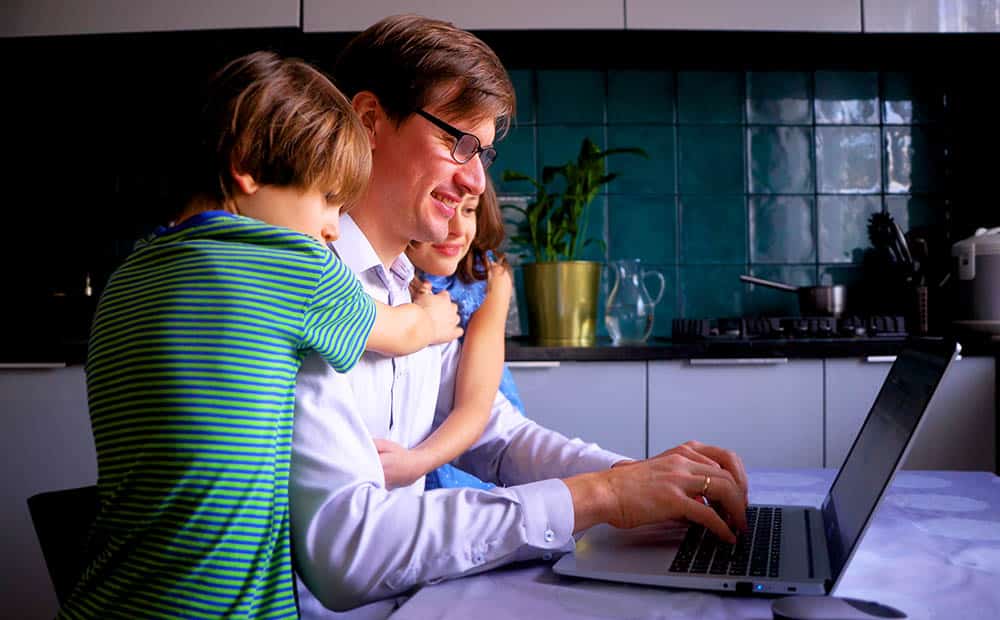Fatherhood in the Modern Era
Being a father has always been an important role in every family, but in the modern era, this responsibility has taken a new dimension. Today, fathers are not just providers or disciplinarians; they are also caregivers, playmates, and mentors. With the changing times and the evolving roles of fathers, it’s time to celebrate fatherhood and acknowledge the vital role fathers play in shaping their children’s lives.
The Evolved Role of Fathers
Gone are the days when fathers were only seen as breadwinners. With more women in the workforce and an increasing recognition of the importance of a father’s involvement in the upbringing of children, fathers are now taking a more active role in parenting. They are involved in their children’s day-to-day activities and take on equal responsibility in raising their children.
Fathers today are more hands-on and committed, from changing diapers to taking their kids to school to helping with homework. They have become more nurturing and empathetic, taking the time to connect with their children and understand their needs. This increase in involvement has many benefits, from reducing children’s behavioral problems to improving their academic achievements.
The Importance of a Father’s Presence
Several studies have shown that a father’s presence is essential to a child’s overall development, well-being, and success. A father’s involvement has a positive impact on children’s social, emotional, and cognitive development. According to research, a father’s active involvement leads to children being more outgoing, more confident, and more willing to explore their environments.
Furthermore, children who grow up with involved fathers have been shown to perform better academically, have fewer behavioral problems, and be more resilient during challenging times. Fathers who are involved also help their children to develop better relationships with others, teaching them how to communicate, share, and cooperate.
Tips for Being an Involved Father
For fathers who want to be more involved in their children’s upbringing, there are some tips that can help:
- Spend Quality Time: Set aside time each week to spend one-on-one with your child. This could be reading to them, playing a game, or going for a walk.
- Attend School Events: Attend parent-teacher conferences, school plays, and other events to show your child that their education is important to you.
- Be Present: Put your phone and other distractions aside when you are spending time with your child. Give them your full attention so that they feel valued and heard.
- Take on Responsibilities: Help with household chores, cooking, and other tasks to show that caring for the family is a shared responsibility.
- Be Affectionate: Show affection by hugging, kissing, and saying «I love you» regularly. This helps to create a strong emotional bond with your child.
- Communicate: Talk to your child about their day, their interests, and any challenges they may be facing. Open communication helps to build trust and strengthen your relationship.
The Role of Fathers in Single-Parent Households
In single-parent households, the role of the father becomes even more crucial. According to research, father absence is linked to a higher risk of poverty, higher rates of educational underachievement and behavioral problems, and even higher rates of mental health issues.
Although being a single parent can be challenging, fathers can still provide a positive influence in their children’s lives. They can maintain contact with their children regularly, be involved in decision-making, and offer emotional support.
The Challenges and Rewards of Fatherhood
Fatherhood comes with both challenges and rewards. Balancing work and family responsibilities can be a struggle, and the emotional demands of raising children can take a toll. Fathers must ensure they prioritize their own well-being to enable them to support their children fully.
However, the rewards of fatherhood outweigh the challenges. The joy of watching children grow and develop, the special moments shared with them, and the satisfaction of being a positive influence in their lives far outweigh any difficulties.
Celebrating Fatherhood
Father’s Day is a time to celebrate the vital role fathers play in their children’s lives. It’s an occasion to reflect on the evolving role of fathers and acknowledge their importance in the family unit. It’s a chance to show gratitude to fathers for their selflessness, hard work, love, and devotion.
Fathers deserve recognition not just on Father’s Day but all year round. We must celebrate the importance of fatherhood and offer support to fathers in their pursuit of becoming active, involved parents. Let us honor the men who have made a positive difference in our lives and those who continue to make a difference in the lives of their children every day.
Conclusion
In conclusion, the importance of fatherhood cannot be overstated. Fathers play a critical role in children’s upbringing, serving as caregivers, mentors, and role models. Their presence is essential to a child’s emotional, social, and cognitive development.
Fathers today have evolved from being mere providers to being actively involved in their children’s lives. They have become more nurturing, empathetic, and dedicated to their parenting roles.
Being an involved father comes with challenges, but the rewards are immeasurable. Fathers have the power to make a positive difference in their children’s lives, and it’s time to celebrate their vital role in the family unit. So on Father’s Day, let us take a moment to acknowledge and appreciate the fathers in our lives who have made us the people we are today.
- Why Venture Capital is Essential for Startups: The Key to Unlocking Success - 28 de mayo de 2023
- Revolutionize Your Business with E-commerce: The Ultimate Guide to Success - 28 de mayo de 2023
- Why Patents are Crucial for Protecting Innovation and Driving Economic Growth - 28 de mayo de 2023
